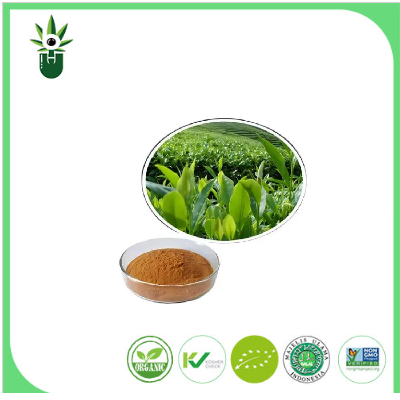The Science Behind Natural Green Tea Extract 98% L: Research and Clinical Insights
2024-07-15
Introduction
Natural green tea extract 98% L is not just a popular health supplement but also a subject of extensive scientific research. This highly concentrated form of green tea extract is praised for its potent health benefits, largely attributed to its high content of polyphenols and catechins, especially epigallocatechin gallate (EGCG). In this blog, we will explore the scientific basis of Natural Green Tea Extract 98% L, highlighting key research findings and clinical insights that underpin its health benefits.
The Science of Green Tea Extract
1. Polyphenols and Catechins:
- EGCG (Epigallocatechin Gallate): The most abundant and potent catechin in green tea extract, EGCG is primarily responsible for its health benefits. It exhibits strong antioxidant, anti-inflammatory, and anti-carcinogenic properties.
- Other Catechins: Green tea extract also contains other catechins like epicatechin (EC), epicatechin gallate (ECG), and epigallocatechin (EGC), which contribute to its overall health effects.
2. Antioxidant Mechanisms:
- Free Radical Neutralization: EGCG and other polyphenols in green tea extract neutralize free radicals, preventing cellular damage and reducing oxidative stress, which is linked to chronic diseases and aging.
- Enhancing Antioxidant Enzymes: Research indicates that green tea extract can boost the activity of endogenous antioxidant enzymes like superoxide dismutase (SOD) and glutathione peroxidase, enhancing the body's natural defense mechanisms.
Research and Clinical Studies
1. Weight Management and Metabolism:
- Fat Oxidation: Studies have shown that green tea extract can increase fat oxidation, particularly during exercise, aiding in weight loss and improving body composition.
- Thermogenesis: Green tea extract has been found to enhance thermogenesis, the process of heat production in the body, which helps increase energy expenditure and fat burning.
2. Cardiovascular Health:
- Cholesterol Levels: Clinical trials have demonstrated that green tea extract can lower total and LDL cholesterol levels, reducing the risk of heart disease.
- Blood Pressure: Research indicates that regular consumption of green tea extract can help regulate blood pressure, providing a protective effect against hypertension.
3. Cognitive Function and Neuroprotection:
- Memory and Learning: Animal studies and human trials suggest that EGCG can enhance cognitive function, improving memory and learning abilities.
- Neurodegenerative Diseases: Green tea extract's neuroprotective effects are linked to its ability to reduce oxidative stress and inflammation in the brain, potentially lowering the risk of diseases like Alzheimer's and Parkinson's.
4. Cancer Prevention:
- Anti-Carcinogenic Properties: EGCG has been extensively studied for its potential to inhibit cancer cell growth and induce apoptosis (programmed cell death) in various types of cancer, including breast, prostate, and colorectal cancers.
- Preventive Effects: Regular consumption of green tea extract has been associated with a lower incidence of certain cancers, attributed to its antioxidant and anti-inflammatory properties.
5. Skin Health:
- UV Protection: Research has shown that green tea extract can protect the skin from UV radiation damage, reducing the risk of skin cancer and photoaging.
- Anti-Aging Effects: The antioxidant properties of green tea extract help reduce wrinkles and improve skin elasticity, promoting a youthful appearance.
Practical Applications and Dosage
1. Optimal Dosage:
- Supplement Form: The typical recommended dosage for green tea extract in supplement form ranges from 250 to 500 mg per day, standardized to contain 50-75% EGCG.
- Beverage Form: When consumed as a tea or added to beverages, aim for 2-3 cups per day to reap the health benefits.
2. Synergistic Effects:
- Combining with Other Antioxidants: Combining green tea extract with other antioxidant-rich supplements, such as vitamin C or resveratrol, can enhance its overall efficacy.
- Dietary Integration: Incorporate green tea extract into a balanced diet rich in fruits, vegetables, and whole grains to maximize its health benefits.
Safety and Side Effects
1. Potential Side Effects:
- Caffeine Content: While green tea extract contains less caffeine than coffee, sensitive individuals may experience jitters, insomnia, or increased heart rate.
- Liver Health: High doses of green tea extract have been linked to liver toxicity in rare cases. It's important to follow recommended dosages and consult a healthcare professional if you have liver conditions.
2. Contraindications:
- Medications: Green tea extract can interact with certain medications, including blood thinners and beta-blockers. Always consult with a healthcare provider before starting supplementation.



